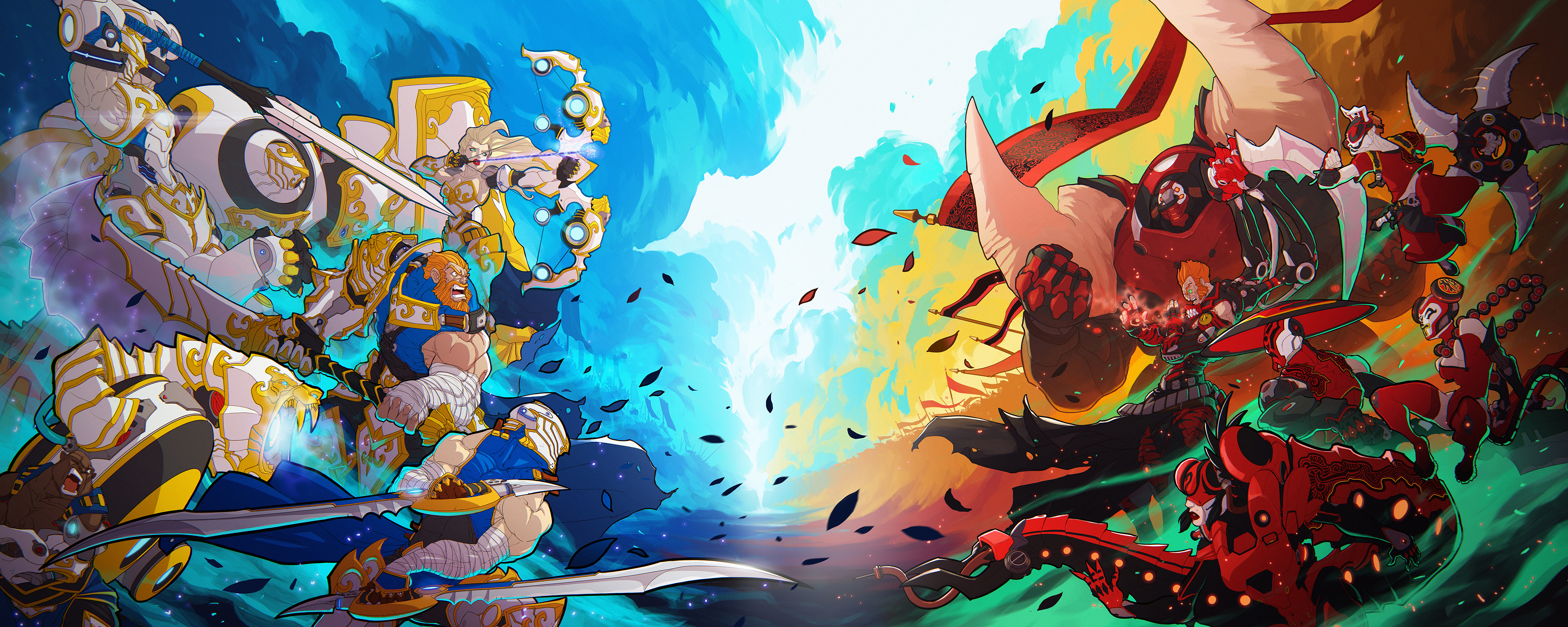
Duelyst went into open beta at the end of last year, and it quickly became one of my favorite digital card games. Counterplay Games has done a great job of emphasizing so many of the things I love about Hearthstone, while also making the entire formula significantly more complex by adding a gridded board. And it's that board which really makes Duelyst a whole different game.
As I get better at playing, I've started to learn a few things I wish I had known before I started Duelyst. Some of those are pretty straight forward, but other tips might not come as naturally as you'd expect. If you're at all interested in trying Duelyst, and assuming you come from a background where you have some knowledge of collectible card games (Hearthstone or otherwise), the advice below will help you hit the ground swinging...
Do all of the single-player challenges
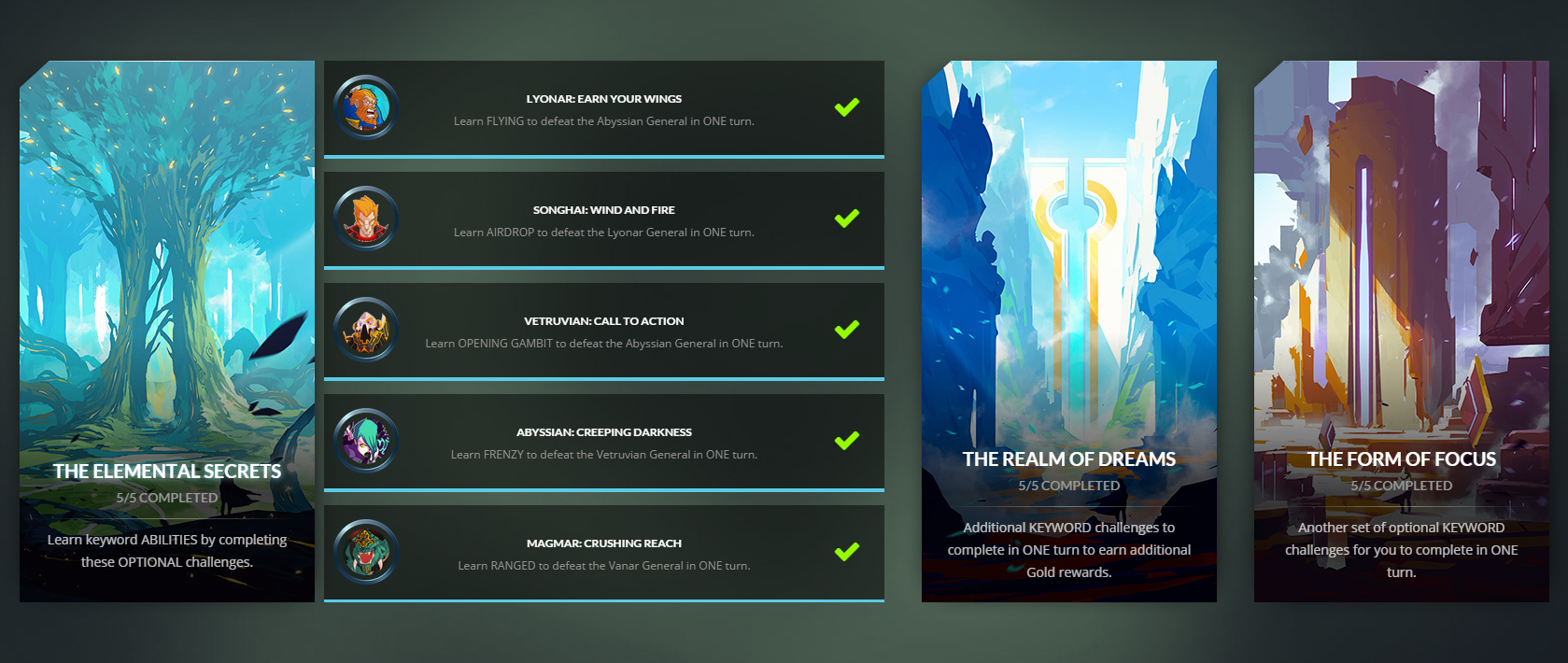
You may want to jump straight into online matches, and while trial-by-fire is not a bad way to learn, completing as many of the single-player challenges as you can is extraordinarily valuable. Not only do you get a boatload gold from doing them all, the single-player challenges ramp up in difficulty nicely, slowly teaching you about new cards and strategies for when you get into the real game.
The vast majority of these throw you into the middle of a match and give you a single turn to kill your AI opponent. This forces you to read all of the cards in your hand, learn about the minions already on the field, and then think about how all of those things work together in order to deal the damage you need. The likelihood of encountering a scenario like this in ranked play is pretty low, and chances are most people would miss most lethal combinations this complex in the heat of the moment, but just learning all of these interactions in a controlled environment will help you wrap your head around Duelyst's strategy.
Plus, as I mentioned, you'll come away from the challenges with a good start to your card collection. Speaking of which...
Get all six factions to level 11
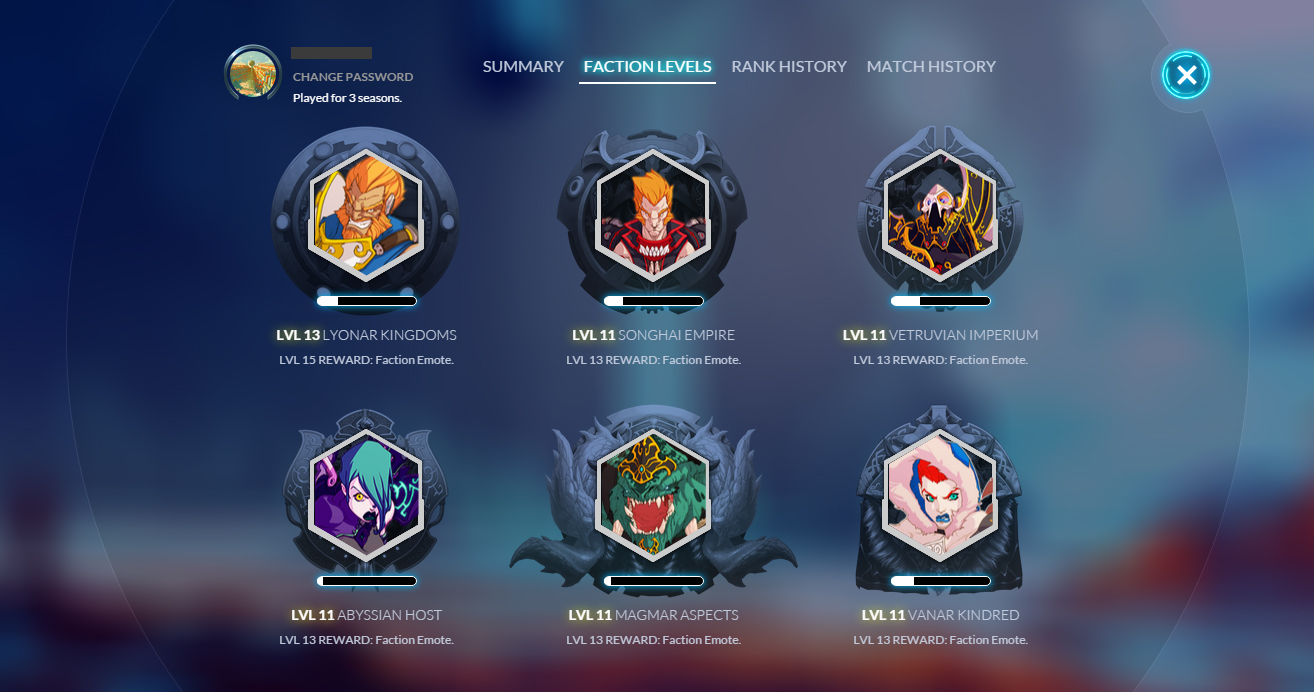
You don't unlock all of a faction's basic cards until you get them to level 10, a task which doesn't take a huge amount of time. But going one level further and getting them to level 11 earns you a free Spirit Orb, Duelyst's equivalent of a card pack. Each orb has five cards in it, one of which is guaranteed to be a rare or better, and getting six packs for free this way is a welcome influx of deck-building options. And that doesn't even include the other bonuses you'll get for completing quests along the way, like the first time you get a faction to level 10.
Apart from the packs and gold, this is the best way to become familiar with the styles of each faction. Because they all have a unique keyword, different factions can end up playing very differently. Vanar's Infiltrate keyword makes them very aggressive, always preferring to be on the opponent's side of the board. Meanwhile Songhai prefers to deal burst damage from afar and will often keep their general back. You won't know these subtleties unless you actually take control of the faction, and you'll also eventually learn which style fits you best.
Keep up to date with the most important stories and the best deals, as picked by the PC Gamer team.
And if grinding all the way to level 11 for a free pack seems rough, I have good news...
Gold comes quickly and rarer cards drop often
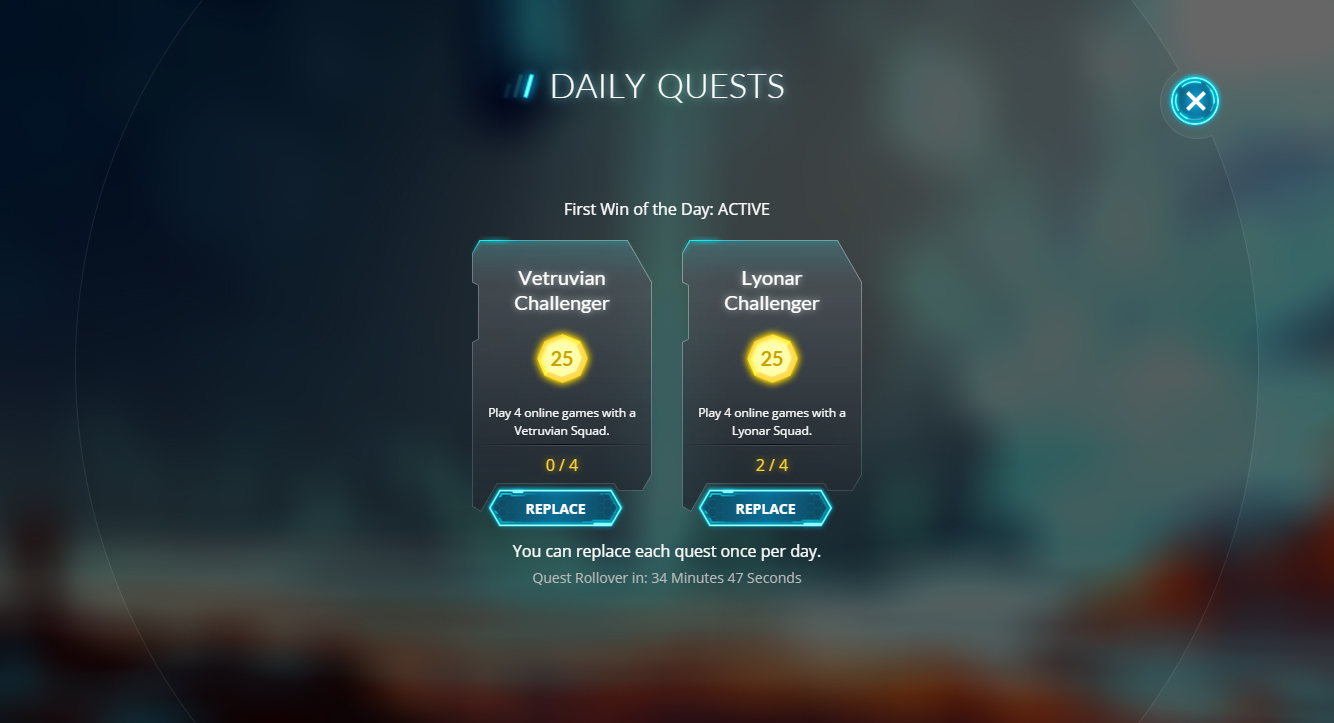
If you are coming from Hearthstone, you'll be very happy to hear about how much quicker your card collection will grow in Duelyst. You get two quests per day, and there are no quests to "win x games with a particular class"—only play games with a specific faction, the outcome doesn't matter. You also get 15 gold every two wins, compared to Hearthstone's 10 gold every three. A Spirit Orb still costs 100 gold for 5 cards, so you're genuinely just getting cards faster.
What's more, those cards are likely going to be better. Or at least "rarer," as all the drop rates are scaled up. Compared to Hearthstone's legendaries, which drop once in every 20 packs on average, Duelyst's legendaries show up about five times as often, with one in every four packs. Epics are twice that, showing up an average of once every two packs. As you'd expect, not all the legendary and epic cards are amazing and powerful, but you'll get to the ones that are quicker. And you'll need them, as there's no extra limit on having legendary cards in your deck.
But even if you don't pull any legendary cards, there are great basic options...
These three neutral minions are your best friends
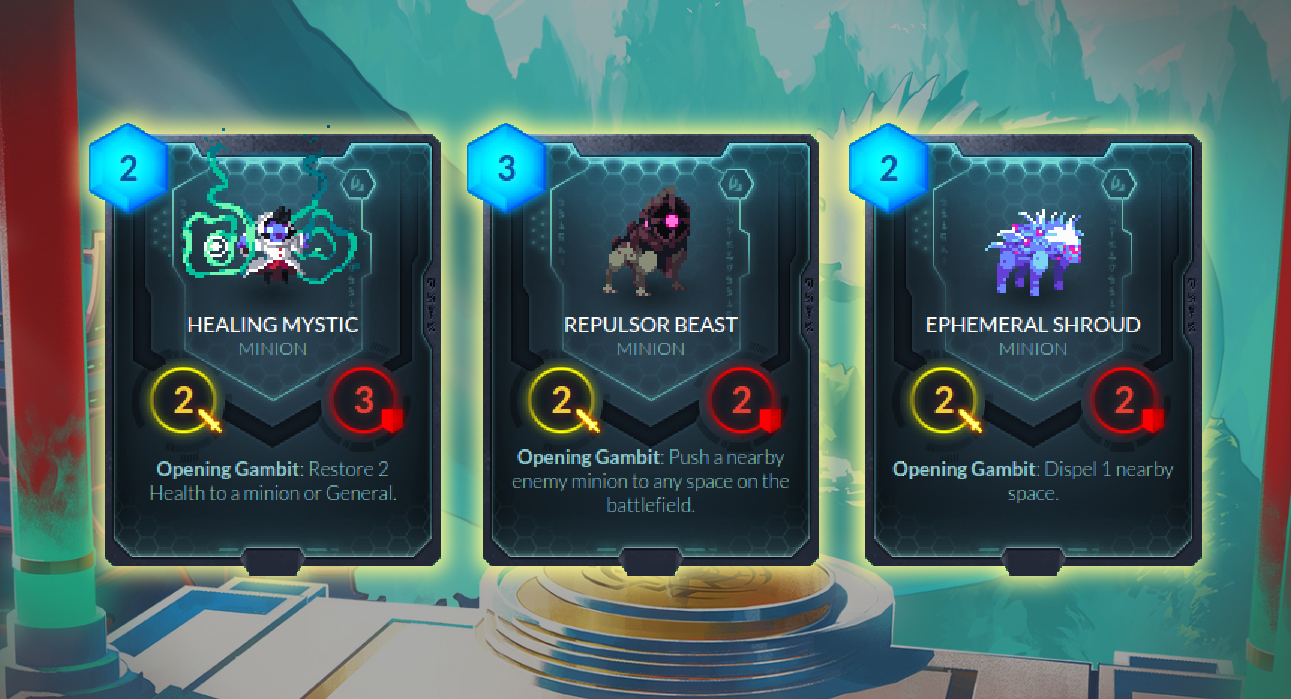
I'm seriously not kidding on this one, you could put three of each of these minions into every one of your decks and it wouldn't be a bad idea. At least, not when you're starting out and don't have many other options. Healing Mystic, Repulsor Beast, and Ephemeral Shroud are all low-cost creatures that offer great utility, and they're available to you right away.
While the latter two don't have very good bodies—the difference between 2-health and 3-health in Duelyst is massive, as the enemy general always has at least 2-attack—playing a Healing Mystic on turn one just to apply pressure isn't a bad decision if there's no better option. And what Repulsor Beast and Ephemeral Shroud lack in stats, they make up for in effect. Buffs are fairly common in Duelyst, making a cheap, neutral Dispel incredibly useful. And if your opponent plays a giant minion you can't kill, just use Repulsor Beast to move it to the opposite end of the map until you have a better answer.
What's more, the bodies they produce can't be underestimated in a game about positioning...
Mana tiles are important, but don't get greedy
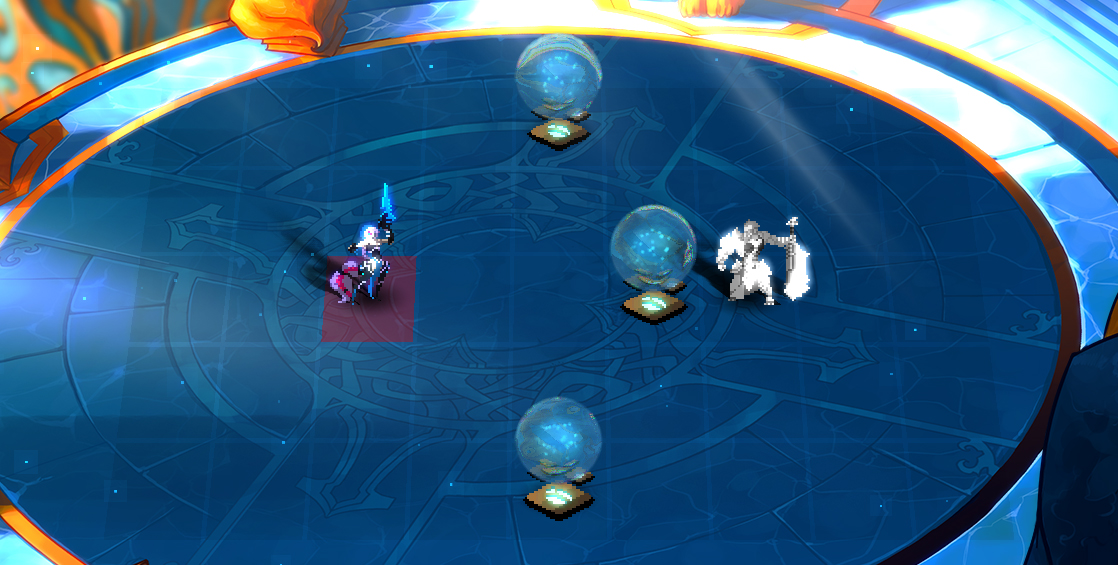
Fundamentally, the mana tiles at the center of the board are there to make players move toward each other. And while you should definitely try to use them quickly and to your advantage, you won't lose the game simply by missing one extra mana. You can potentially use these tiles to snowball from an early lead, but more often than not you'll be using them to summon small bodies that can be cleared out by the enemy general.
In a way, denying your opponent the extra mana is just as important as being able to effectively use it. There's nothing wrong with ending your turn with leftover mana if it means the enemy doesn't have that mana available to use on their turn. Of course you want to try and make good use of them, but if your options are risk your opponent taking one for the chance of using it on your next turn or wasting the tile, I would waste it every time.
What mana tiles are also really good at is teaching you early positioning. Proper minion positioning is probably the single most important thing to learn in Duelyst, because you can use any minions—even small ones like the three above—to limit the options your opponent has while also increasing the area you can summon new minions to. To learn good positioning, first start by thinking about where you place minions in relation to the early game mana tiles. From there, you can start looking at more complex scenarios.
And if you want to learn some more complex strategy, there's a place for that too...
The Gauntlet is a great way to see new cards
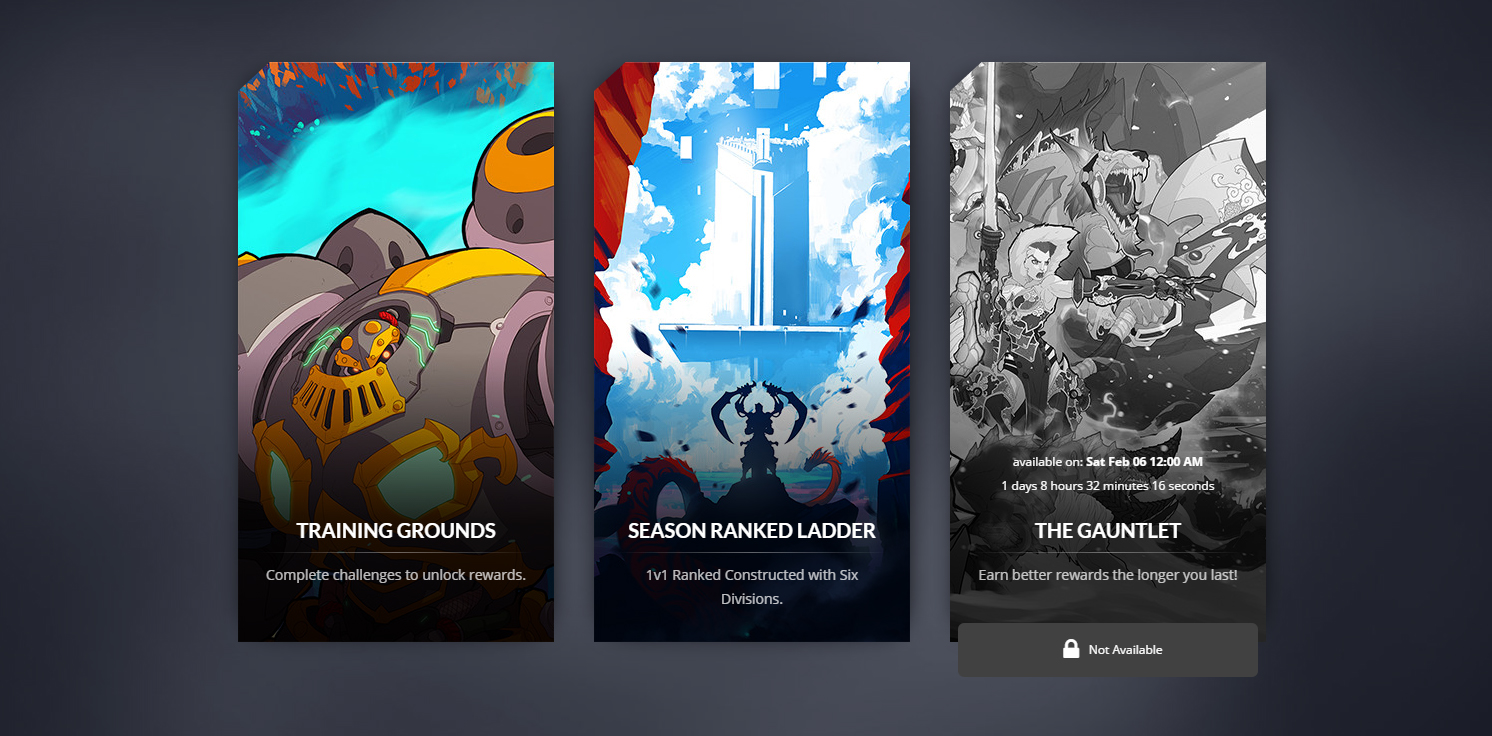
Finally, we have The Gauntlet; a draft-style mode similar to Hearthstone's Arena. You are repeatedly given an option between three random cards until you've built a full deck of 40. Then you face other Gauntlet decks and see how many wins you can get before getting three losses, gaining better rewards the further you make it. It can definitely be challenging to know what is and isn't good in The Gauntlet, and it's risky when an entry ticket costs 150 gold, but it can also be a great place to learn about new cards you don't have in your collection.
The only problem is that The Gauntlet is currently only open two days a week, Saturdays and Wednesdays. Counterplay has done this to make sure there are always opponents to be found when queuing up for The Gauntlet, as the playerbase is still relatively small. If you don't manage to finish a run before the end of the day, your deck and progress will be saved and you can continue on the next available day. It can be intimidating, but it's a great way to grow your collection and learn about the game at the same time.
Duelyst is currently in open beta, and you can sign up to play for free right here.


